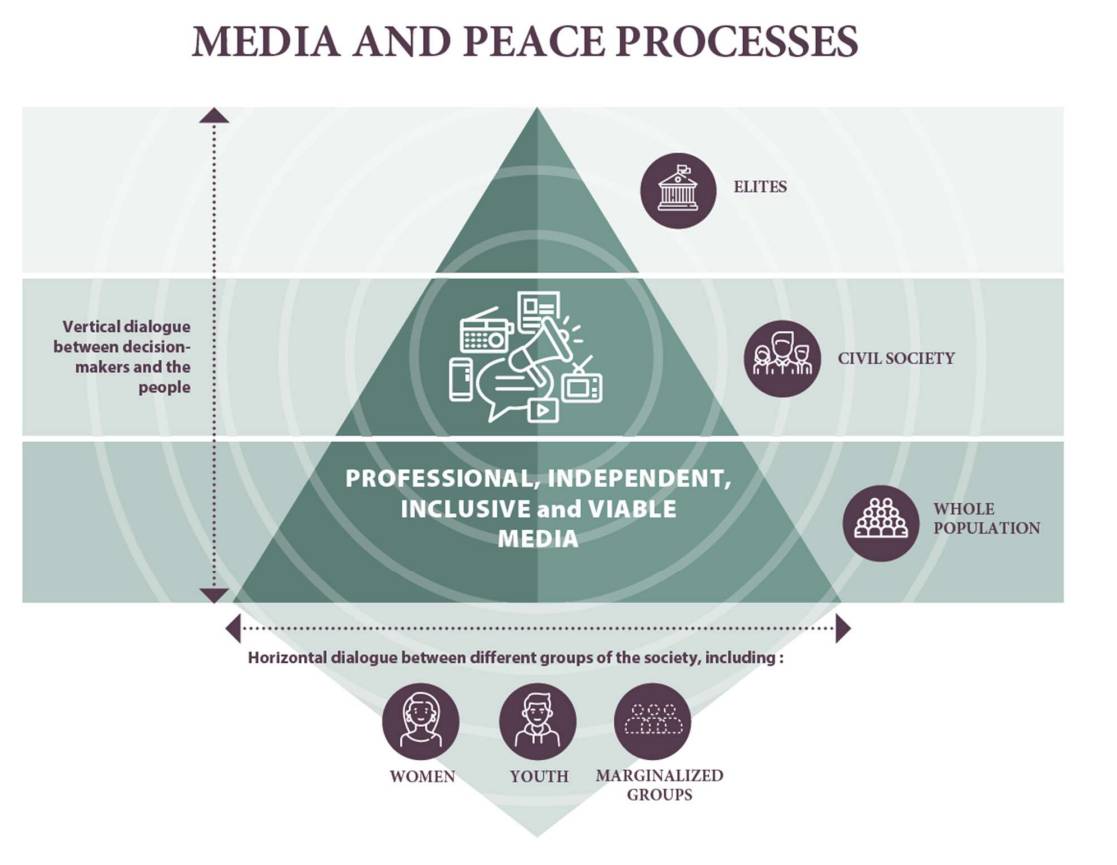As part of the European Union's Community of Practice (CoP) on peace mediation held in mid-October, Fondation Hirondelle, together with Interpeace and ESSEC Irene, co-organized a panel discussion on the link between the media and mediation.
The CoP is an annual meeting designed to advance the political and practical approach of the EU and its partners to mediation issues. This is the second year in a row that Fondation Hirondelle has proposed a panel on the theme of media and mediation to this group of peace mediation experts and practitioners. For us, "it's important to take part in the CoP, because it's mainly mediation actors who are present, and we can bring a media perspective to it. We're one of the few organizations that bring this perspective to mediation processes", says Caroline Vuillemin, General Director of Fondation Hirondelle.
Facilitating dialogue
In mediation processes, the media have the advantage of being able to play the role of intermediary, facilitating both vertical and horizontal dialogue. Vertical, because they enable dialogue between the various parties involved in the process: from the population to the elite (i.e. the parties involved in the conflict, representatives of political parties, representatives of armed groups, mediators), via civil society (including associations, trade unions, professional bodies). They therefore enable dialogue between these different layers. But they also enable different points of view to be heard across the board, particularly those of women, young people and marginalized groups.
The media thus have an important role to play in mediation processes. Firstly, because they can inform the population at large about the progress of these processes. Secondly, for those involved in them, they can act as sounding boards for the population's expectations, making it possible to pass on the population's testimonies to those making the decisions.
Our position and recommendations
Following our panel, we produced a concept note to outline the issues, challenges and constraints encountered by the various players in mediation processes and to develop recommendations.
This document is important both internally and externally. Internally, it clarifies our position when Fondation Hirondelle is called upon to work in contexts where mediation processes, peace agreements or monitoring of peace agreement implementation are underway. Secondly, externally, it explains how the media can play a role in these processes, and raises awareness among peacebuilding and mediation professionals of the challenges associated with the media environment and the work of the media in particular. These recommendations are necessary so that the involvement of the media in mediation processes is qualitative, more systematic and can maximize their contribution to peace efforts.
We invite you to read this concept note here. This document aims to contribute to a broad reflection on the contribution of the media in mediation processes. We therefore remain open to all comments and suggestions for discussion.




